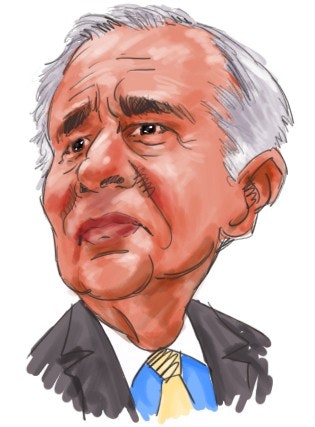Hewlett-Packard Company (NYSE:HPQ) was up as much as 5% earlier this week on rumors that billionaire Carl Icahn might be buying up shares. Icahn is one of the best corporate raiders around, but we are not ready to jump head first into HP on the idea that he might be ramping up for a campaign (check out Carl Icahn’s newest picks).
In order to trigger a 13D filing with the SEC, Icahn would have purchase up to 5% of HP’s common stock outstanding. This would require an approximate $1.4 billion investment on Icahn’s part, which would put HP as one of Icahn’s top 13F investments. With the apparent exit from Oshkosh, Icahn will be freeing up time and several hundred million dollars that could be used toward another investment, but we do not see it at HP.
HP posted 3Q results that saw EPS beating estimates despite lower order renewals and large write-downs. The restructuring initiatives will likely result in continued weakness and write-downs, as the company focuses on core operations to find its next major growth avenue. The past quarter showed some shifting of strategic priorities to restructuring efforts, which has in part put the stock down over 20% in the past three months.
The printer business is facing intense competition, with top competitors Lexmark and Canon becoming more aggressive, and refill options for ink now at very low costs. Restructuring initiatives should save HP upwards of $3.5 billion over the next half-decade, driven by the layoff of 25,000+ employees through 2014. These savings are expected to be reinvested in new growth opportunities, particularly cloud computing. The company’s already diverse product portfolio – PCs, printers and software – should also help to alleviate some pressure.
HP also has a market leading position in the computer equipment business with over 25% of industry-wide revenues, ahead of top rival Dell. Billionaire Jim Simons – founder of Renaissance Technologies – is one of Hewlett’s big backers, upping his stake over 3,500% last quarter (check out Jim Simons’ other top picks).
Dell Inc. (NASDAQ:DELL), meanwhile, is one of HP’s top competitors and should see revenues down around 10% in FY2013. This decline will be driven by weakness in its PC segment, on both the consumer and business sides. The overall economy and competitive low-cost pressures from Asian manufactures are expected to also be major pressures. One bright spot for Dell, though, is the expected rise in server sales. Billionaire Ray Dalio is curiously a big fan of Dell, as he increased his stake in the company by 50% last quarter (see all of Ray Dalio’s picks here).
Microsoft Corporation (NASDAQ:MSFT) is another tech company that has much more of a diverse portfolio than the other PC makers HP and Dell. Microsoft expects revenues to be up 8.5% in FY2013 and 7% in FY2014. Part of what is driving Microsoft is its new release of various products, including Windows 8 and Office Suite. Microsoft calls billionaire Ken Fisher – founder of Fisher Asset Management – one of its biggest investors (check out Ken Fisher’s newest picks).
Apple Inc. (NASDAQ:AAPL) is another “enemy” of HP’s that is taking market share from both computer companies and mobile companies – including Google and its Motorola devices. Apple has been one of the best growth opportunities given its robust product portfolio and should continue to perform well. Its industry high 20%+ long-term expected earnings growth rate puts its valuation at a discount to most of its peers. Despite cries of a “death cross” and other bearish technical indicators, it’s important to note that one major market technician was calling for a return to Apple’s $700 highs. Check out his bullish case for AAPL here; it’s worth a read.
Last but certainly not least, Netflix, Inc. (NASDAQ:NFLX) has taken up much of Carl Icahn’s time and money of late, as the corporate raider established a 10% stake in the video streaming company earlier this fall. Netflix is up around 45% since the end of October, and now trades over 100x earnings. The next layer of growth for Netflix is expected to come via international subscribers, with total subscriptions in this space growing from 26.2 million in 2011 to 34.7 million in 2012. Analysts predict this figure will hit 43.6 million in 2013. We believe that the interim will be costly for Netflix’s expansion, but that Icahn might be pushing for a strategic sale of Netflix to a key partner. Fellow billionaire Eddie Lampert also loves Netflix, having taken a new position during 3Q (check out Lampert’s newest picks).
Although the initiatives and far reach of HP makes it a compelling long-term value play, it does appear to be a bit out of Icahn’s scope and size. While it might not be likely that Icahn is backing HP, we believe that investors can buy in at a relatively reasonable price. HP trades at the cheapest forward P/E (4.1x) compared to Dell (6.2x), Microsoft (8.4x) and Apple (9.3x). Assuming HP can initiate key savings, it very well could trade in line with Dell on a P/E basis given its market share dominance.






